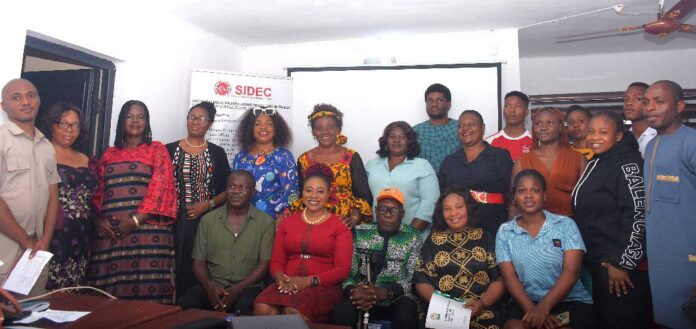The Social and Integral Development Centre (SIDEC) has identified a lack of interest in the electoral process and low voter turnout during elections as a major impediment to the emergence of credible leadership in Nigeria.
The Executive Director, Ugochi Ehiahuruike, disclosed this in Awka, Anambra State, at the launch of the Inclusive Mobilization for Participation, Advocacy, and Civic Transformation (IMPACT) Project in Anambra and Imo States, aimed at boosting civic participation and inclusive governance.
Project IMPACT is implemented by the Nigeria Civil Society Situation Room in partnership with SIDEC, with funding from the UK Foreign, Commonwealth and Development Office (FCDO).
Ehiahuruike attributed the voter apathy and low turnout challenges to the wrong perception of elections by youth and marginalized groups as violent, corrupt or irrelevant.
“Low turnout remains a major obstacle. Anambra’s 2021 governorship election recorded only 10% voter participation, one of the lowest in Nigeria’s history.
“Youth and marginalized groups often view elections as violent, corrupt, or irrelevant. We must change this perception by demonstrating the value of their voices,” she said.
According to Ehiahuruike, the IMPACT project aims to increase the political participation of women, youth, and persons with disabilities (PWDs).
She said the project would also address long-standing challenges of exclusion, political apathy and disinformation in the South-East through grassroots mobilization, policy advocacy, and digital campaigns.
Her words: “Project IMPACT targets at least 25% turnout in the next cycle in November through a blend of grassroots education and digital outreach.
“The project will build on the organization’s inclusive governance work across Anambra’s 158 structured markets, where women and youth dominate but remain underrepresented in leadership.
“In Anambra markets, although women and PWDs constitute the majority of traders and apprentices, decision-making roles are still controlled by men.
“Project IMPACT will institutionalize democratic elections for women and PWDs in 15 strategically selected markets—five per zone—moving representation beyond token appointments.”
SIDEC boss however expressed satisfaction over visible results past market engagements had already produced such as fire trucks, road construction, and health centres, proving the place of inclusive leadership in development.
“At the policy level, Project IMPACT will push for the adoption of the Special Seats Bill in both states to secure legislative representation for women and PWDs.
“Currently, Anambra has just one woman out of 30 in its House of Assembly, while Imo has none out of 27.
“Despite Nigeria’s democratic progress, women hold only 3.7% of Senate seats and 3.9% in the House of Representatives.
“Cultural norms, lack of resources, and absence of institutionalized elections in markets limit women’s participation, while PWDs face even steeper barriers, including accessibility challenges and systemic neglect.
Ehiahuruike stressed that without democratic legitimacy, symbolic appointments cannot build sustained leadership or reverse apathy.
Stakeholders at the project inception ceremony pledged to support its lofty goals.
Ugo Okeke, the Chairman of the Joint National Association of Persons with Disabilities (JONAPWD), said: “If we all work together, we can achieve 25 percent turnout of voters in the forthcoming election. Attention must also be paid to voter security.”
Kenneth Ogoaju, who is Chairman of Agboedo Motor Spare Parts Market, Nnewi, and Juliet Ezenwosu, National President of the Artisan Women Association, committed their associations to the initiative.



